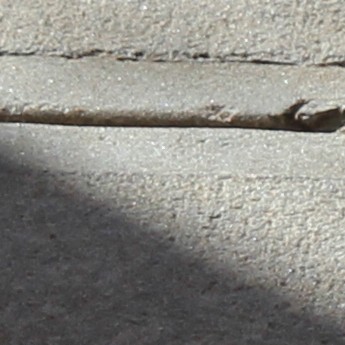Great cinema elicits complaint: why can’t all films be as good; reproduce such a terrifying experience; represent banality in such a wondrous way? Great cinema cannot be adequately described in one word. Thus, we resort to facile qualifiers such as the one that begins this paragraph. After all, what does great mean? Whatever it is, it is unfailingly sticky. It sticks precisely because it denies simple categories and easy explications.
La moustache, is both a metaphysical and phenomenological feast, all complexity and delight wrapped in a little more than 90 minutes of film rolling against any logic that attempts to unravel the film as such. La moustache builds one scene upon another scene of intense possibility as well as sheer impossibility. And in the ecstasis that engulfs that protagonist, the spectator begins to feel equally trapped, timidly hoping for a quick resolution that will shed forgiving clarity on everyone, the protagonist, his wife, and most importantly, the viewer him or herself. Clarity and certitude, the troubled viewer seems to believe at some point during the film, will cause relief and pleasure. A hoax. Relief and pleasure seldom coexist. And the maker of La moustache shows to be acutely aware of that. By not facilitating relief, by constantly shooting down it rearing head, the writer and director of the film insures uncomfortable, extreme pleasure that generates a chaotic stream of thoughts. Stream of thoughts, multiple and diverse, flows and clashes with no resolution in sight.
Forget names. The particularities of the narrative, in some ways, prove to be merely accidental. It matters little or nothing that he is an architect of the privileged upper class. That his girlfriend has a suspect past ought to mean no more, no less than that. The physical details scattered throughout the film, however, are not. They matter for the say exactly what they keep quiet about. The details in the film do not speak symbolically or allegorically. They stand exactly for what they are. And when we attempt to force them to say more, the narrative in its filmic form breaks down as pleasure begins to dissipate, slowly but definitively. The photo submerging in the ocean must be only that, a photo submerging in the ocean. The reason the protagonist throws the photo, however, demands interpretation, which, nonetheless, must remained unfinished in utter dissatisfaction. Why he throws the photo becomes a question simply because he had first chosen to keep it. There is no psychology. Simply a choice.
Not a thriller. Not just a drama. The film is, instead, a philosophical quest. What does it mean to be oneself? What are the external and internal forces that delineate and substantiate one’s sense of self? What are the modern conditions that permit me to declare….”therefore, I am”? What are the ever shifting predicates of today? La moustache does not answer any of these questions. It becomes great cinema precisely because it limits itself to posing the questions rather than configuring answers that would inexorably betray the impossible profundity of the questions? One could say that if the film offers any semblance of possible answer is that any answer resides in the interrogation itself. That is, the extent of the answer does not exceed the tenuous domain of the query itself.
La moustache will leave you dissatisfied–deeply. But you will find almost obscene pleasure in that dissatisfaction. You will become the site in which Cartesian and empirical processes will clash and reveal their insufficiencies. In those moments during and after viewing the film, you will return to the visuality of the film rather than its narrative per se. To the photograph. The ship. The crowed. The ugly jacket. To the non-present moustache. And if good fortunate meets you halfway, you will find yourself wondering: what is the meaning of something’s non-existence?
